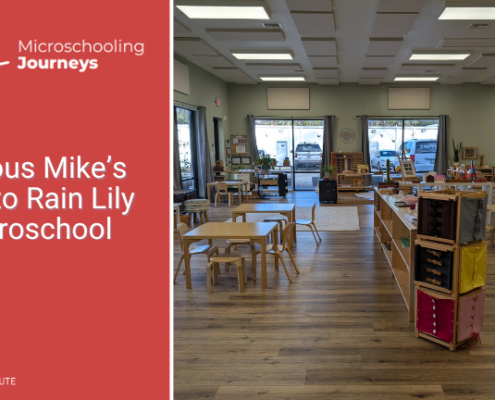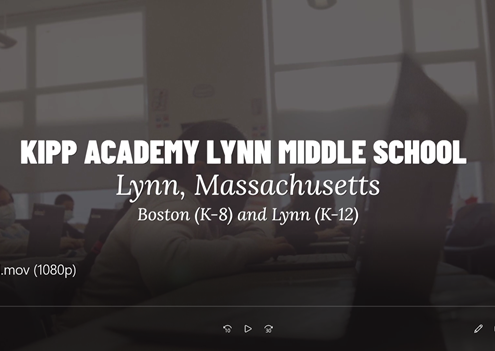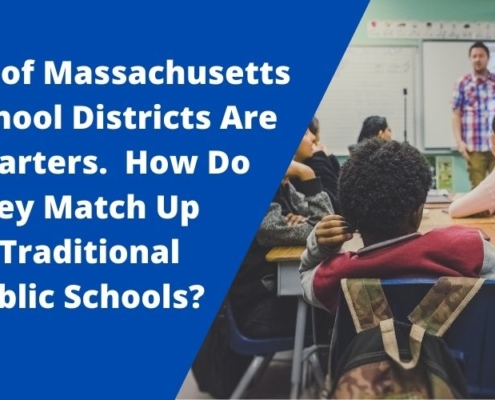Study Finds Declining Student Achievement and Increased Harm to School Choice Since Common Core
Read coverage of this report in The Daily Caller, Breitbart News, and The Federalist.
Curriculum centralization has failed to improve international competitiveness—it’s time to re-think curriculum standards-based reform
BOSTON – While U.S. academic performance has declined since the broad implementation of Common Core, school choice programs are increasingly hamstrung by regulations that require private schools to adopt a single curriculum standards-based test as a condition for receiving public money, according to a new study published by Pioneer Institute.
“When states mandate a particular curriculum standards-based test, private schools are essentially required to adopt the curriculum content and pedagogy on which the test is based if they want to increase the probability that that their students are successful,” said Theodor Rebarber, Chief Executive Officer of AccountabilityWorks, an education nonprofit, and co-author of “Common Core, School Choice and Rethinking Standards-Based Reform.”
Video: Authors Discuss New Report on Common Core & School Choice
Nearly two thirds of U.S. tuition grant (“voucher”) programs require schools to administer a single curriculum-based test, typically a Common Core-aligned test, in order to receive public money. Tax credits are less susceptible to government mandates than voucher programs are.
Under tax credit programs, parents paying tuition or others that donate money receive a tax credit. The authors find that in 95 percent of cases, these programs are not subject to curriculum-based testing mandates.
Common Core is the logical endpoint of nearly three decades of Congressionally-mandated centralization through ‘standards-based reform’ that has moved key curriculum content, sequencing and pedagogical decisions away from local school systems and educators to the state and national levels. Instead of the promised accountability for results or informed school choice, the outcome at the local level has been a culture of compliance (“alignment”) that has intruded into the core function of curriculum and teaching.
“With its near-monopoly status distorting the textbook and other instructional materials markets,” said Neal McCluskey, director of the Cato Institute’s Center for Educational Freedom, who co-authored the study with Rebarber, “Common Core blunts the innovation, dynamism and competition that is the heart of the school choice movement.”
The authors find that after several decades of only incremental test score improvements, which started prior to federal requirements for curriculum centralization, since Common Core was implemented in 45 states and Washington, D.C., student results are showing the first significant declines in achievement, especially for students who were already behind.
Fourth- and eighth-grade math scores were down overall on the 2015 and 2017 National Assessment of Educational Progress. The declines among lower-performing students (bottom quartile) were even steeper. Fourth- and eighth-grade reading scores were flat, with declines among lower-performing students. At the same time, the U.S. is no closer to the internationally competitive performance in math and science observed in top-tier developed nations.
Instead of accelerating the curriculum to more advanced topics and following the practices of leading international competitors, Common Core’s politically-driven process resulted in the adoption of the mediocre curriculum sequences used in a number of mid-performing states and promoted progressive instructional dogmas shared by its developers.
The authors do not recommend the adoption of a different set of national curriculum standards; rather they propose reducing federal mandates and permitting broader state experimentation.
At the state level, the authors identify two possible avenues for reform of public schools. The first is for states to emulate the pre-Common Core Massachusetts model, under which the state engaged a team of visionary curriculum standards drafters to develop clear and ambitious academic goals approximating the highest quality public and private schools. The reality, however, is that most states have not been successful in implementing this model and even Massachusetts in recent years has moved away from this approach in favor of the flawed Common Core.
“The second possibility is to re-conceptualize standards-based reform and accountability,” says co-author Rebarber. “We must shift standards-based reforms away from government central planners in order to disrupt the status quo and leverage innovative, ambitious curricula.”
Instead of the current federal mandate requiring that each state adopt a single, homogeneous set of curricular standards and test-driven instruction, states could be permitted to allow local districts, vocational-technical, and charter public schools to use the curriculum that best fits their needs and select from a variety of state-vetted assessments the ones that most closely align to the local curriculum.
Rebarber explains that “it would mean the end of the current misguided model of the national or state testing tail wagging the local curriculum dog, which parents oppose. The result would be a surge in investment at the national and local levels in far more diverse curricular and pedagogical models that do not conform to politically-established, lowest common denominator government curriculum standards.”
To empower states interested in such reforms, when the federal Elementary and Secondary Education Act is next reauthorized, scheduled to occur in two years, the authors recommend that Congress eliminate the mandate that every state impose a single statewide set of curriculum standards and allow states to experiment with diverse approaches to accountability.
In a foreword to the study, University of Arkansas Distinguished Professor of Education Policy Patrick J. Wolf likens Common Core to “scientific management,” which is defined by standardization and command and control, and school choice to “liberation management,” which is marked by decentralization, choice and competition.
“Diversity has long been a hallmark of these United States, especially in the area of education,” Professor Wolf writes. “At its essence, this fine report gives us good reasons, at least in K-12 education, to favor more pluribus and less unum.”
About the Authors
Neal McCluskey is the director of the Cato Institute’s Center for Educational Freedom. He is the author of the book Feds in the Classroom: How Big Government Corrupts, Cripples, and Compromises American Education and is co-editor of Educational Freedom: Remembering Andrew Coulson, Debating His Ideas.
Theodor Rebarber has worked on education reform and policy for three decades in the public, nonprofit and private sectors. He currently leads nonprofit AccountabilityWorks, which conducts education policy research and offers online testing services.
Patrick J. Wolf is Distinguished Professor of Education Policy at the University of Arkansas. He has led or assisted with most of the key evaluations of private school voucher programs over the past 15 years, including recent studies of programs in Washington, D.C., Milwaukee, and Louisiana.
About Pioneer
Pioneer Institute is an independent, non-partisan, privately funded research organization that seeks to improve the quality of life in Massachusetts through civic discourse and intellectually rigorous, data-driven public policy solutions based on free market principles, individual liberty and responsibility, and the ideal of effective, limited and accountable government.
Get Our Common Core Updates
Related Research





















